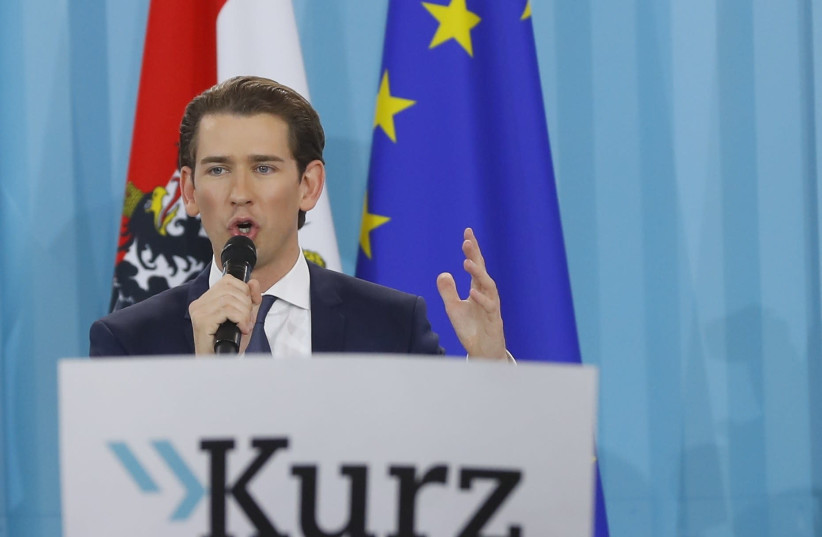Former Chancellor of Austria, Sebastian Kurz, was named to the Honorary Advisory Council of the Abraham Accords Peace Institute (AAPI) last week. The AAPI is a non-partisan, US-based, non-profit organization dedicated to supporting the implementation and expansion of these historic peace agreements.
The mission of the Institute is to strengthen the new bonds created through the Abraham Accords and ensure that these relationships achieve their fullest potential. The institute was established by Jared Kushner, former senior advisor to past president Donald Trump. Kushner was the living force behind the Abraham Accords and facilitated it from the start.
Kurz has joined international leaders such as Senator Joe Lieberman, businessman Haim Saban, Ambassador Yousef Al Otaiba of the UAE to the US, Ambassador Abdullah Al Khalifa of Bahrain to the US, Israeli Ambassador Michael Herzog, Princess Lalla Joumala, Moroccan Ambassador to the US (MOR), Avi Berkowitz, former advisor to the US president, and Robert Greenway, president and executive director of the Abraham Accords Peace Institute.
“We look forward to benefiting from former Chancellor Kurz’s advice on our efforts to increase European support for strengthening and expanding the Abraham Accords.”
Robert Greenway, President and Executive Director of AAPI
“We are honored to welcome former Chancellor Kurz to our Honorary Advisory Council,” Robert Greenway, President and Executive Director of AAPI said regarding the appointment. “We look forward to benefiting from former Chancellor Kurz’s advice on our efforts to increase European support for strengthening and expanding the Abraham Accords.”

Who is the former Chancellor of Austria?
Kurz is a former Austrian politician who twice served as Chancellor of Austria. He joined the Young People's Party (JVP) in 2003 and worked to ascend to the party leadership in the subsequent years. Kurz received his first government position as State Secretary because of a cabinet reshuffle in 2011. Two years later, as a result of the 2013 legislative election, Kurz became Austria’s Foreign Minister and remained its chief diplomat until December 2017.
“The Abraham Accords was a historic milestone and achieved what previously had been regarded as impossible. I am therefore honored to have the opportunity to become a member of the Honorary Advisory Council and to help sustain and expand the accords. I hope more countries will follow in their footsteps and look forward to the many ways Europe can make important contributions in the future.”
Former Chancellor of Austria Sebastian Kurz
Kurz became Chancellor of Austria after his party emerged as the victor of the 2017 Austrian legislative election. He remained Chancellor of Austria until May 2019 and again served from January 2020 through October 2021. Kurz was credited with being the youngest head of state in Europe during his tenure and now spends a significant amount of his time in Israel and the Arab region.
On his appointment, Kurz said, “The Abraham Accords was a historic milestone and achieved what previously had been regarded as impossible. I am therefore honored to have the opportunity to become a member of the Honorary Advisory Council and to help sustain and expand the accords. I hope more countries will follow in their footsteps and look forward to the many ways Europe can make important contributions in the future.”
